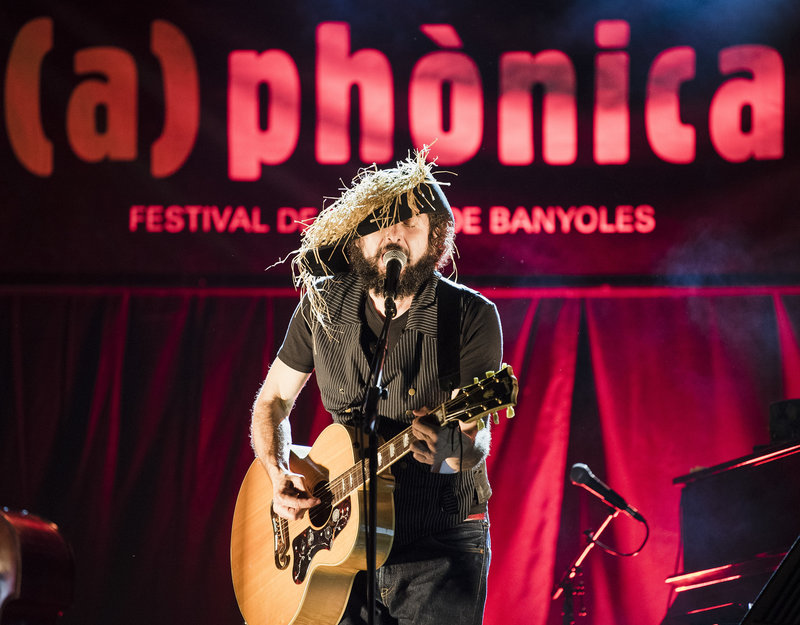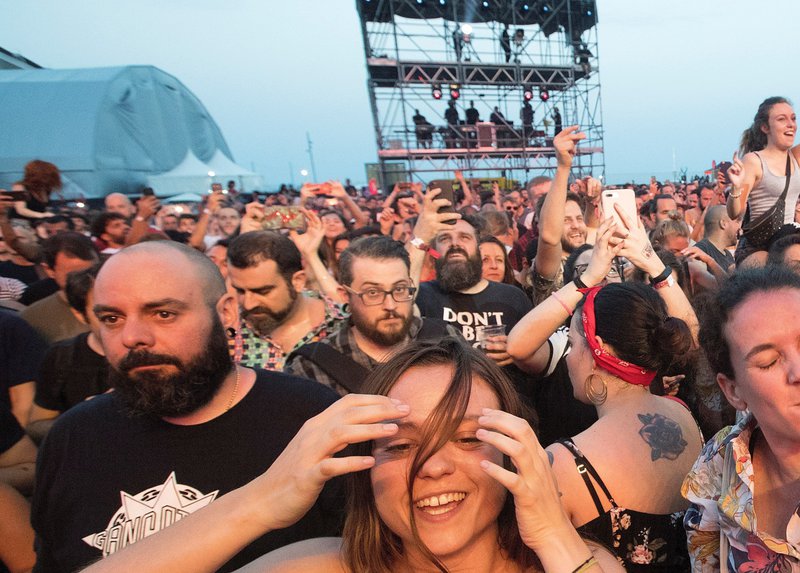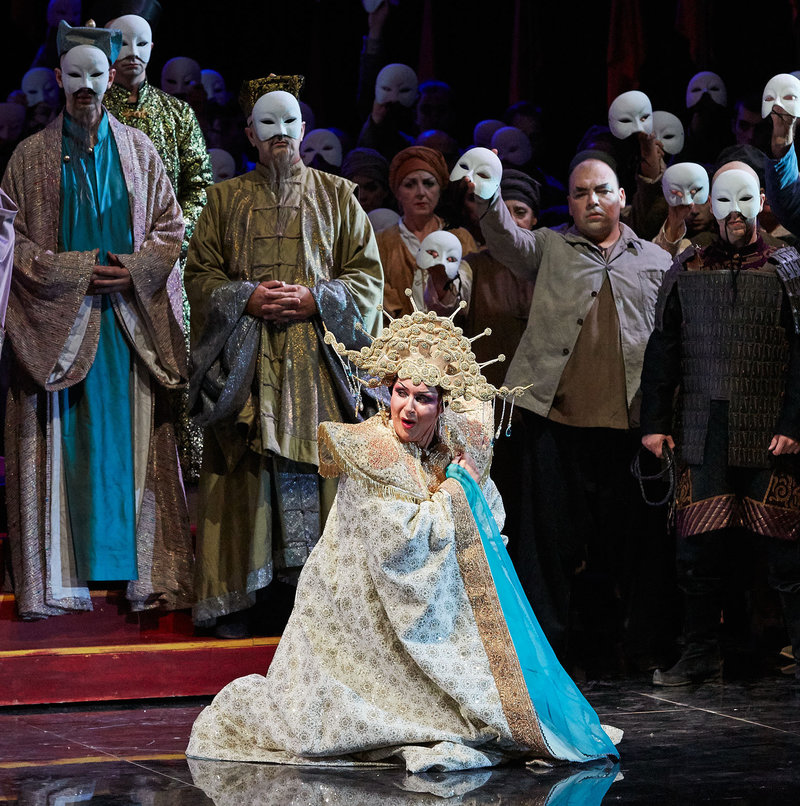Festivals without a date
The Covid-19 crisis has left the schedule of summer festivals up in the air. At this time, the promoters do not know if the events can be held or under what conditions, and some have already decided to cancel this year’s editions
“A summer festival, which is done outdoors, is unfeasible in November“
After months of work, with funds already invested and with thousands of jobs at stake, the promoters of the main musical summer events are outraged.
The Covid-19 restrictions have put the schedule of annual summer festivals at risk and, for the moment, it is still not known whether they can be held or under what conditions.
It is the lack of clarity about the measures imposed by the Spanish government that have led some organisers to cancel this year’s events. Such is the case of the Peralada and Jardins de Pedralbes festivals, Barcelona’s Polo Music Festival, Rockdest in Santa Coloma de Gramenet, Minipop in Tarragona, the Fresc Festival in Sabadell and the No Surrender festival in Mollerussa, to name a few.
Tito Ramoneda, founder and director of The Project, which organises such prominent festivals as Porta Ferrada in Sant Feliu de Guíxols and the Barcelona International Jazz Festival, and who is also vice president of the APM (Association of Music Promoters), criticises the Spanish government for not providing clear directives and for not ordering the cancellations due to force majeure.
“In this sector, rather than knowing when we can do things, we need to know until when we can’t do things. Other European countries have already been given dates, but here, not yet. The uncertainty that we are experiencing is negative,“ he says.
Ramoneda admits he is pessimistic: “I seriously doubt we’ll be allowed to do anything. Maybe some very small-scale events with local artists, because one thing that is very clear is that the international acts will not turn up.“ He is a little more optimistic about the autumn/winter period: “I trust the sector can get started again in the last two months of the year,“ he says.
Yet, he also warns that this is far from ideal. “Certain events are unfeasible with a reduced capacity,“ he says, adding that some summer festivals don’t make sense in winter: “A summer festival, which is done outdoors, is absolutely unfeasible in November or in December.“
In the case of the Porta Ferrada Festival, from July 10 to August 15, no decision has yet been taken, but if it goes ahead it is likely the concerts will take place in August only. “We hope that we can do the festival this year, although right now it’s absolutely unfeasible to hold it under the same conditions we planned for, but nor do we have any more news either,“ says Ramoneda, who adds that they are studying various alternatives in conjunction with the Sant Feliu de Guíxols town council, “which has the last word.“
Promoters of other festivals find themselves in the same fix, such as Xavier Pascual, director of Promo Arts Music and manager of the Strenes and Acústica festivals in Girona and Figueres. “Every day that goes by, everything changes, and everything we say now, by tomorrow could already be out of date,“ he says.
An example is the Strenes festival, which was to have taken place from March 28 to May 3 but, due to the Covid-19 crisis, was rescheduled from June 26 to July 11, although even these dates are not sure. “Four weeks ago, we thought we could make it, but in 15 days our opinion has completely changed, because the input we’re getting from politicians, scientists, and our sector are all negative; everything suggests that we won’t be able to go back to normal life, that there will be no more concentrations of people, that there will be a whole series of measures..., and that events like music festivals will be the last in line,“ says Pascual, who also criticises a lack of “any protocol to follow”.
An added problem for most festival organisers is that they cannot apply for the government’s temporary redundancy scheme: “If the staff stop working, who organises the festival? We have to maintain the structure, even if we’re working for something that we may end up never doing; those who are working need to be paid. How do we do that?“ Pascual asks.
The organisers of the Jardins de Pedralbes festival have already made the decision to cancel this year’s edition, which was to open on June 3 with a performance by Sara Baras. Martín Pérez, the director of the musical event, says it involves the work of 700 people between direct and indirect staff, with a budget of about four million euros.
The same decision was made by the managers of the Castell de Peralada Festival, who see holding the 34th edition, scheduled for July 2 to August 15, as unfeasible. However, they are looking into the possibility of offering some cultural content, preferably in streaming form, during this summer.
Promoters hope that after the pandemic, they can go back to putting on large-scale concerts. “I hope that in the future we can work on festivals with the same format as before, because a concert with social distancing dispels the magic; it will not be the same for artists, either, having people scattered around the enclosure, without the warmth of a full space,“ believes Ramoneda.
Music promoters will have to adapt to safety measures as well, although this does not frighten them, on the contrary: “We can make going to a concert much safer than going to El Corte Inglès [department store]. With disinfection tunnels, with controls of all kinds... With the right tools, we can make our events the safest places, because we are specialists in this area,“ says Pascual.
Promoters also claim that if they are finally unable to organise festivals, then the authorities should “provide aid to sustain the structures of the companies that make festivals possible,” says Ramoneda, who warns: ”If not, it’s quite likely that there won’t be any festivals in 2021 either.”
The live music industry accounts for thousands of jobs and a great many euros are at stake. “The economic impact is very serious. If there’s no help for this sector that’s already fragile, we could find that when concerts are possible again it has disappeared, out of starvation. Help and protection measures for the sector are key,“ claims Pascual.
music
On shaky ground
PRIMAVERA SOUND The most attended festival in the country was postponed until the end of August, and then until next year.
SÓNAR The electronic music festival was first put back but then postponed until June 17-19, 2021.
CAP ROIG The 20th edition is still set for July 10 to August 22.
TORROELLA The festival in Torroella de Montgrí was to have taken place from July 23 to August 21.
CRUÏLLA The event in Barcelona’s Fòrum park will not be back until next summer.
CANET ROCK Maresme’s emblematic event will now take place on October 3 rather than July 4.
CAMBRILS The festival will have to wait until 2021 to celebrate its 46th edition.
MÚSICA ANTIGA DELS PIRINEUS The classical music festival held in the Pyrenees was one of the first to cancel and will hold it’s 10th edition next July and August.
VIJAZZ The festival in Vilafranca del Penedès, which brings together music and wine, is still to go ahead on July 3-5, albeit adapted to the restrictions..
ACAMPADA JOVE The festival blending politics and music will be back in July 2021.








